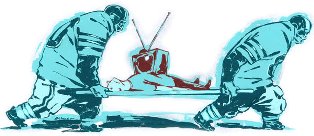December 16th, 2011 by admin in Health Tips
1 Comment »

It’s a moment of sheer panic. You find your child chewing something and holding an open bottle of medicine. You don’t know how much, if any, medicine your child swallowed, or if it will make your child sick.
Unfortunately, as a pediatrician and poison center medical director, I’ve seen this happen all too often. In 2009, in fact, America’s 57 poison centers received more than 575,000 calls involving children younger than 6 and medicines – including prescription and over-the-counter drugs, herbal products, and vitamins.
When that moment of panic happens, it’s good to know that help is just a phone call away. Read more »
*This blog post was originally published at Safe Healthcare*
August 14th, 2011 by KerriSparling in Interviews, Opinion
No Comments »

 Jay Radcliffe is a fellow type 1 diabetic, and I remember reading his diabetes blog way back in the day, when I first started blogging. We read and commented on each other’s posts, and we were both part of the blogosphere when the DOC first started to grow. I knew he was married, had children, and did the day-to-day diabetes stuff that I did.
Jay Radcliffe is a fellow type 1 diabetic, and I remember reading his diabetes blog way back in the day, when I first started blogging. We read and commented on each other’s posts, and we were both part of the blogosphere when the DOC first started to grow. I knew he was married, had children, and did the day-to-day diabetes stuff that I did.
Which is why when I read the mainstream media’s take on his pump-hacking research (this article, Insulin Pumps Vulnerable to Hacking, for example), I reached out to him immediately. “Can I just tell you that my mother sent me this article about your research? Do you have time to talk?”
Jay was out in Las Vegas this morning, attending the Black Hat security conference, but he and I had a chance to hash it out over the phone.
“I know you! And I know you as a diabetic, not as this guy who hacks insulin pumps and has a billion articles floating around about it on the web right now. I have a few questions. Starting with, why did you decide to hack into your own insulin pump?”
Read more »
*This blog post was originally published at Six Until Me.*
February 6th, 2011 by Dinah Miller, M.D. in Health Tips, Humor
No Comments »


 So it’s Super Bowl Sunday and the fans are psychiatric patients waiting to happen — the beer and the beer and the beer, and maybe the fights will break out, and they’ll all end up in therapy. Oh, the angst and the panic, and the pre-game anxiety, and the post-game euphoria or depression.
So it’s Super Bowl Sunday and the fans are psychiatric patients waiting to happen — the beer and the beer and the beer, and maybe the fights will break out, and they’ll all end up in therapy. Oh, the angst and the panic, and the pre-game anxiety, and the post-game euphoria or depression.
New York Times reporter Benedict Carey talks about treatment options in his article, “A Home Treatment Kit for Super Bowl Suffering.” Mr. Carey suggests:
Breathing exercises are highly recommended and become increasingly important as the football contest nears the fourth quarter, when events on the field are likely to prompt strong physiological reactions, like a pounding heart, hyperventilation, even dizziness. These internal cues, as they’re called, can escalate the feeling of panic, a self-reinforcing cycle resulting in groans and cries that can be frightening to small children, pets and sometimes neighbors.
In the final minutes of the game, be forewarned: Many patients will move beyond the reach of therapy. Their faces may change, their breathing appear to stop. Researchers have not determined whether this state is closer to Buddhist meditation or to the experience of freefall from an airplane. All that is known is that, once in it, patients will fall back on primal coping methods, behaviors learned in childhood within the cultural context of their family.
Like emitting screams. Or leaping in an animated way, as if the floor were on fire. Or falling on their back and moving their arms and legs like an overturned beetle, in celebratory fashion.
This post is dedicated to my husband and son.
*This blog post was originally published at Shrink Rap*




 Jay Radcliffe is a fellow type 1 diabetic, and I remember reading his diabetes blog way back in the day, when I first started blogging. We read and commented on each other’s posts, and we were both part of the blogosphere when the DOC first started to grow. I knew he was married, had children, and did the day-to-day diabetes stuff that I did.
Jay Radcliffe is a fellow type 1 diabetic, and I remember reading his diabetes blog way back in the day, when I first started blogging. We read and commented on each other’s posts, and we were both part of the blogosphere when the DOC first started to grow. I knew he was married, had children, and did the day-to-day diabetes stuff that I did.










